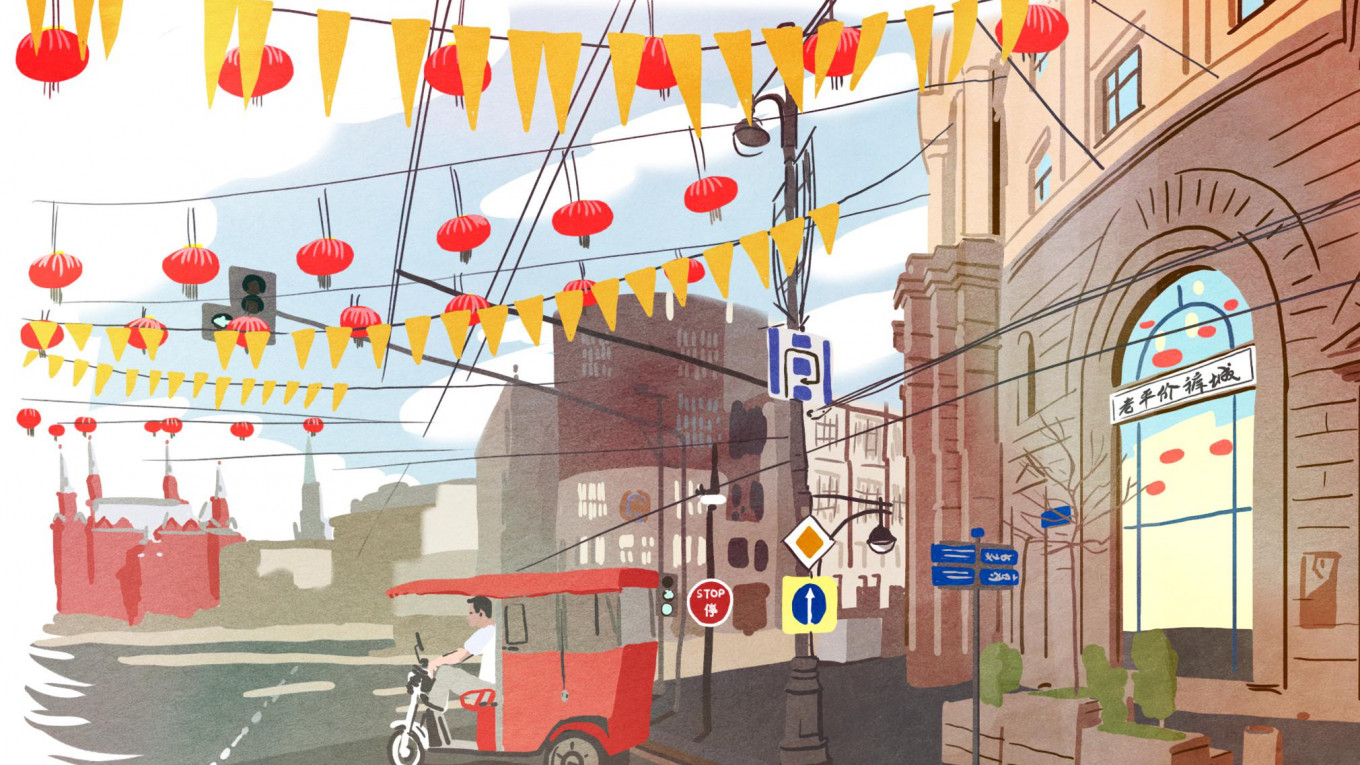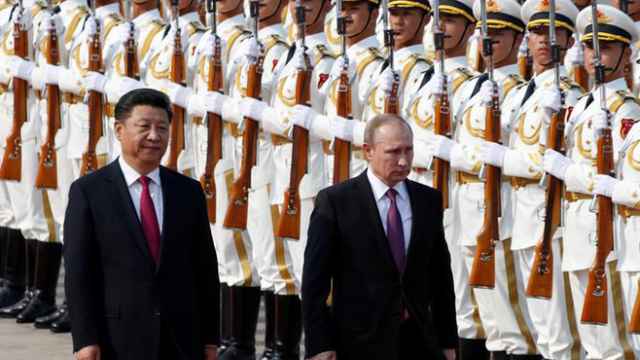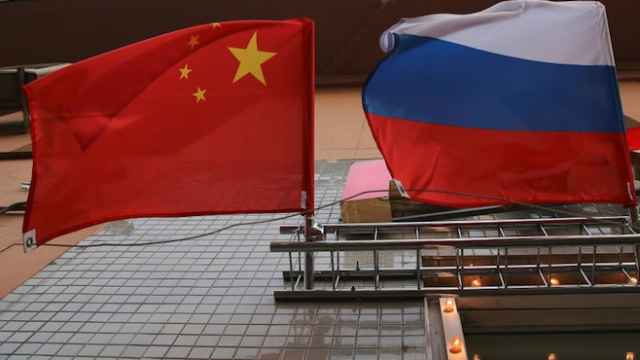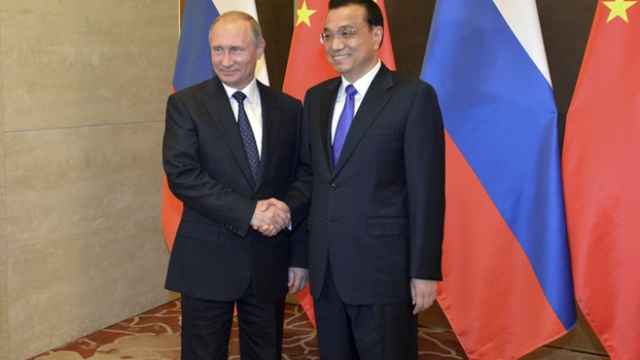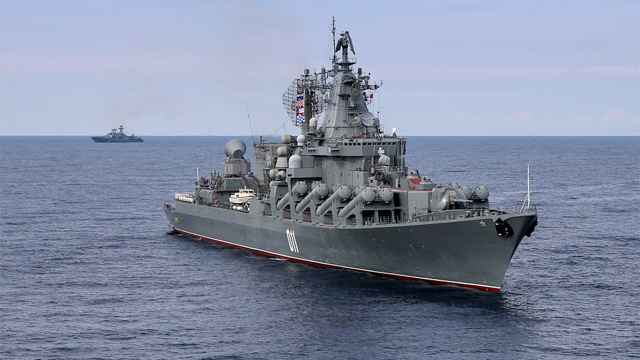Fifty kilometers outside central Moscow, the bucolic village of Pervomayskoye might seem like an unusual place to celebrate Russia’s growing ties with China. But a new Chinese cultural center and museum hopes to do just that.
In July, Russian Deputy Prime Minister Olga Golodets and her Chinese counterpart, Liu Yandong, sped into town for the ceremonial opening of a Chinese Communist Party Museum. Amid a display of more pomp and circumstance than the village had seen in years, 8,000 residents suddenly found themselves at the nexus of Sino-Russian relations.
Pervomayskoye, it turned out, had once hosted a famous Chinese Communist Party Conference. It presented Russia and China with a golden opportunity to showcase joint history and consolidate bilateral relations.
With the collapse of relations with the West after Moscow’s 2014 annexation of Ukraine’s Crimean peninsula, Russia’s ties with China have taken on new significance. Interest in China and its culture, which “never existed before,” is now growing among Russians, says Svetlana Krivokhizh, a lecturer at the Higher School of Economics.
And public diplomacy — efforts to establish dialogue between societies and cultures — has been increasingly pursued by both sides.
Old Ties, New Relations
Some consider the museum complex in Pervomayskoye, a former aristocratic manor from the 18th century, to be the birthplace of the Chinese revolution.
In 1928, when nationalist leader Chiang Kai-Shek was purging socialists back home, exiled Chinese communists held their only party conference outside China in that building. Known as the Sixth Party Conference, the event has long been significant to the Chinese leadership — seen as a moment when other communists came to the Chinese revolutionaries’ assistance.
Starting in Soviet times, Beijing pleaded with the Russian authorities for permission to build a museum commemorating the conference. Their efforts met with little success until 2013. At the G20 summit meeting between Vladimir Putin and his Chinese counterpart Xi Jinping, the Russian president agreed to rent the historic building to Moscow’s Chinese cultural center.
The Chinese took two years to deal with Russia’s notorious red tape. When they finally made it to Pervomayskoye to begin renovation work, they found a building in ruins. Bombed by Germany during World War II, the manor had stood empty throughout the 1990s, and nearly burnt to the ground in a 2011 fire.
Today, after 10 months of intensive restoration, the building has been returned to its former, imperial glory. Pastel yellow walls, marble floors, and crystal chandeliers now stand as monument of Chinese and Russian unity.
Public Diplomacy
The glossy new museum falls into Beijing’s broader strategy of public diplomacy within Russia.
Since the early 2000s, the Confucius Institute (CI), an international educational organization connected to China’s Education Ministry, has opened over 20 Chinese language learning centers in Russia. In recent years, interest among Russians has only grown.
Educational exchanges are also on the rise. In 2014, the Chinese and Russian authorities decided to expand educational exchange programs so that each country would send 20,000 students to the other each year. A year later, Russia’s foreign aid agency quietly reoriented the “New Generation” program, which brings young professionals to Russia from abroad for short exchanges, on Asia — with a special focus on China.
This July, a new Chinese bookstore, Shans Boku, opened off Moscow’s central Novy Arbat. At the opening, several senior Chinese and Russian officials cut the ceremonial ribbon. The store is the project of Shans, a Russian company that partners with major Chinese publishing companies to make Chinese literature accessible to Russian-speaking readers.
Next month, a major Russia & Asia Forum, whose sponsors include the House of Russo-Chinese Friendship and the Sino-Russian Chamber of Commerce, will be held in Moscow.
Together, these developments form what political scientists term “soft power” — non-coercive efforts to shape public attitudes. Russian foreign policy expert Dmitry Suslov says Beijing is increasingly interested in using these tools in Russia and Central Asia, where it hopes to build a transport corridor to Europe.
“Soft power is a tool to convince your partner to do what you want to do,” Suslov said. “Both countries are working on that now.”
But Russian public opinion towards China is contradictory at best. During the stand-off with the West, China has been perceived as a partner and one of the friendliest countries toward Russia. At the same time, Suslov says, Russians still relate negatively to the Chinese and fear the so-called “yellow threat.”
Many Russians also perceive China as a primitive society, says HSE’s Krivokhizh: “They still believe the Chinese are uneducated and backwards.”
Suspicious Partners
Doubts also linger between political elites in Moscow and Beijing.
Russian officials worry about China taking over the Russian Far East; or about Moscow being too junior a partner in the relationship. The Chinese, meanwhile, worry that Russia’s turn toward China is purely tactical and only temporary. Many assume that if relations with the West improve, Russia will turn its back on China.
Such fears can even derail otherwise successful public diplomacy. In 2015, local authorities in Blagoveshchensk, a Russian city on the Chinese border, accused the local Confucius Institute of violating Russia’s infamous “foreign agent” law. The case was only dropped after the Chinese embassy became involved.
In other places, Russians have proven more receptive to Chinese influence. In Pervomayskoye, locals speak proudly of their new park and bus station, all renovated on the Chinese yuan. Property values in the village have skyrocketed. Chinese soft power may have a ways to go, but in Pervomayskoye it is proving to be a success.
In the long run, soft power might be able to bridge gaps where diplomacy fails. Krivokhizh warns not to expect results in the immediate future. So far, Chinese public diplomacy has not been particularly effective, “though the Chinese are very persistent.”
A Message from The Moscow Times:
Dear readers,
We are facing unprecedented challenges. Russia's Prosecutor General's Office has designated The Moscow Times as an "undesirable" organization, criminalizing our work and putting our staff at risk of prosecution. This follows our earlier unjust labeling as a "foreign agent."
These actions are direct attempts to silence independent journalism in Russia. The authorities claim our work "discredits the decisions of the Russian leadership." We see things differently: we strive to provide accurate, unbiased reporting on Russia.
We, the journalists of The Moscow Times, refuse to be silenced. But to continue our work, we need your help.
Your support, no matter how small, makes a world of difference. If you can, please support us monthly starting from just $2. It's quick to set up, and every contribution makes a significant impact.
By supporting The Moscow Times, you're defending open, independent journalism in the face of repression. Thank you for standing with us.
Remind me later.


